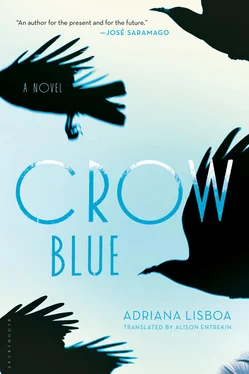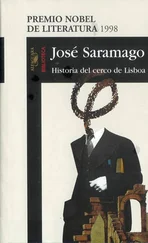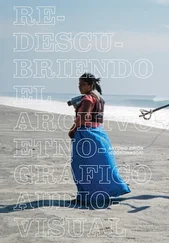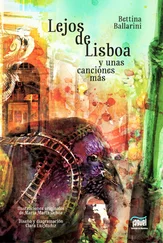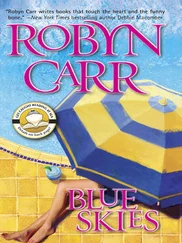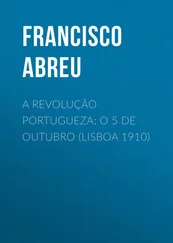In February, Osvaldão, another who had been there from the beginning, who was the communists’ immortal warrior, was killed. His body was exhibited in local settlements. The immortal one was dead. Brought down by a woodsman. Then they made his body disappear. The military would finish exterminating the guerrillas with Operation Cleanup — a simple, crystal-clear, honest name that required no interpretation.
General Geisel, who took office that same month, said that the whole business of killing was regrettable, but it couldn’t have been any different.
And with that the killings went on. And on. They needed to kill and then kill the deaths, so to speak. They needed to kill history. To kill the memory and a certain inconvenient awareness.
They all died, one by one. Some simply went missing, but missing was one of the codenames of death. It was another way to pronounce it.
Among the missing, among those who no one knew how they had died and where they were buried, was Manuela. She was captured one day when she went to visit a local woman who used to collaborate with the guerrillas, in search of food. Famished, thin, sick, barefoot, covered in sores and insect bites, Manuela spent the night at the woman’s house and woke up surrounded by soldiers. That was the last anyone heard of her. Her parents grew old and died without ever knowing what happened to her.
The last guerrilla was executed in October. Walkíria Afonso Costa, a.k.a. Walk, was captured in Xambioá.
To erase their own footprints, the military decided to dig up the bodies, which were compromising, and burn them in the forest, which they did using tires and gasoline.
In the country’s unofficial, confidential history, the Araguaia guerrilla war was over.
In São Paulo, Ângelo Arroyo continued to believe in the strategy of armed struggle in the countryside. In the second half of 1976, he traveled to other regions of the country in search of alternative scenarios for the fight. He visited the states of Rondônia, Acre and Mato Grosso, and sailed down the Amazon. He was machine-gunned down two days after the party’s Central Committee met in São Paulo in December of that year, a meeting in which he continued to insist on the guerrilla movement.
Florence gazed at me. We came here because during the time she spent with your son Suzana fell pregnant, and at the end of the year she had a daughter .
Florence gazed at me as June, whose words still rang in the air, and Fernando, whose expectation resounded even higher, gazed at Florence and Carlos kneaded his ball of clay as if he were trying to pulverize it. To transmute earth into fireworks. To see dancing lights explode in the air and ricochet off sculptures and items of pottery.
Florence looked at me and asked, is it true?
I saw her eyes moving slowly within their orbits. I saw the wrinkles around her eyes growing longer and deeper, the genesis of a new mountain range in swift animation. Unstable plates were moving inside her, in a subterranean heart, amidst cold underground water and corridors of hot lava.
Why didn’t you call me first?
We did, said June. A few weeks ago.
I must have heard your message — I listen to them at least once a week. But I’m a bit absent-minded. I think I’ve already told you that. And even if I didn’t, you must have noticed. One notices such things.
It doesn’t matter, said June.
No, said Florence. It doesn’t.
And then, having obtained whatever it was that she needed, she turned to June and Fernando and said thank you for coming and for trusting me.
There was an inversion in that, I thought. She was the one who was trusting us. She was the one who was doing us the favor of believing, in a world of unbelievers and the mistrustful. She was the one who was accepting a tiny revision brought to her on a tray with tea and ginger cookies. A new member of the family on a plate, to use as a sugar substitute.
But Florence took my hands in hers, and it was as if our hands were also exchanging words, looks, completing phone calls that had gone astray. My small, thin, rough hands. Her long, knotty hands, with age spots.
Isabel came with us when we returned to June’s house after that night in Vista del Mundo, in Albuquerque. I was going to celebrate Thanksgiving for the first time in my life, without really knowing what it was that we were celebrating, together with my Salvadoran friend, my mother’s Brazilian ex-husband, my mother’s old friend made-in-the-UK, my mother’s former Puerto Rican student and the two old mastiffs. And the next day, now familiarized, we would look like a rehashed hippie community. And in the middle of the night I would see the pair of coyotes, the Canis latrans , which were thin, with long legs and pointy ears. The aloof, nocturnal pair.
On the Sunday, we would head back north. To Colorado, Lakewood and the house on Jay Street. Isabel would take a bus back to Albuquerque. And things would silently migrate out of themselves and become other things that no one imagined they would. Things would revolutionize themselves, slowly and quietly.
They say that the cells of your body are replaced every seven years, such that you continue to be the same person but, at a cellular level, you have become another, if you compute both extremes. The idea sounds strange, because the cells aren’t all replaced at once, so after seven years you won’t have a fully-recycled body. But at the same time you will.
Things I had hoped would happen didn’t, things I hadn’t hoped would happen did, and some things I’d never thought about — like visiting the Ivory Coast — thought about me of their own accord.
But in those days at June’s house in Santa Fé we all laughed together and told stories about other times and other places, and sang songs from other times and other places (and from our time and our places) and looked at photographs. One morning we went to visit the Chimayo sanctuary, where the woman said me puedes ayudar un dólar por favor (I gave her the dollar and Fernando ignored her, asking in a low voice how I could fall for it but it was my money and my problem).
That night, as the coyotes roamed around outside, Fernando and Isabel disappeared into the room she was sleeping in, and no one asked any questions, and everyone thought it was fine. And we were so different to one another that the differences were annulled; we were a big uniformity in multiple forms.
On the Monday after the holiday, Fernando went to work at the Denver Public Library. I went to school. Carlos went to school.
That afternoon, Fernando had a cleaning job to go to.
Would Fernando have liked Isabel to move to Colorado? I don’t know. Would Isabel have liked to move to Colorado — or for Fernando to move to New Mexico, or to have moved with him to Puerto Rico or somewhere else in the world? I don’t know.
None of it happened, because sometimes things are the wrong answers to the questions we ask, or the right answers to the questions we forget to ask. (There is no wisdom in this. It wasn’t my grandmother who taught me — not least because I never met one of them, and I presented myself to the other one when I was almost fourteen years old and lacked the ears for teachings that she never seemed interested in passing on anyway.)
Perhaps neither Fernando nor Isabel suggested a move. Demonstrated their willingness. Like the water that you don’t offer someone because you don’t know they’re thirsty, and the water that the thirsty person doesn’t ask for because they don’t want to impose, full of bourgeois ceremony. (Strange as it may seem, it was my mother who taught me that, adding: only be ashamed of things that are shameful, otherwise you’re wasting your time. Shyness is unnecessary and boring.)
Читать дальше
